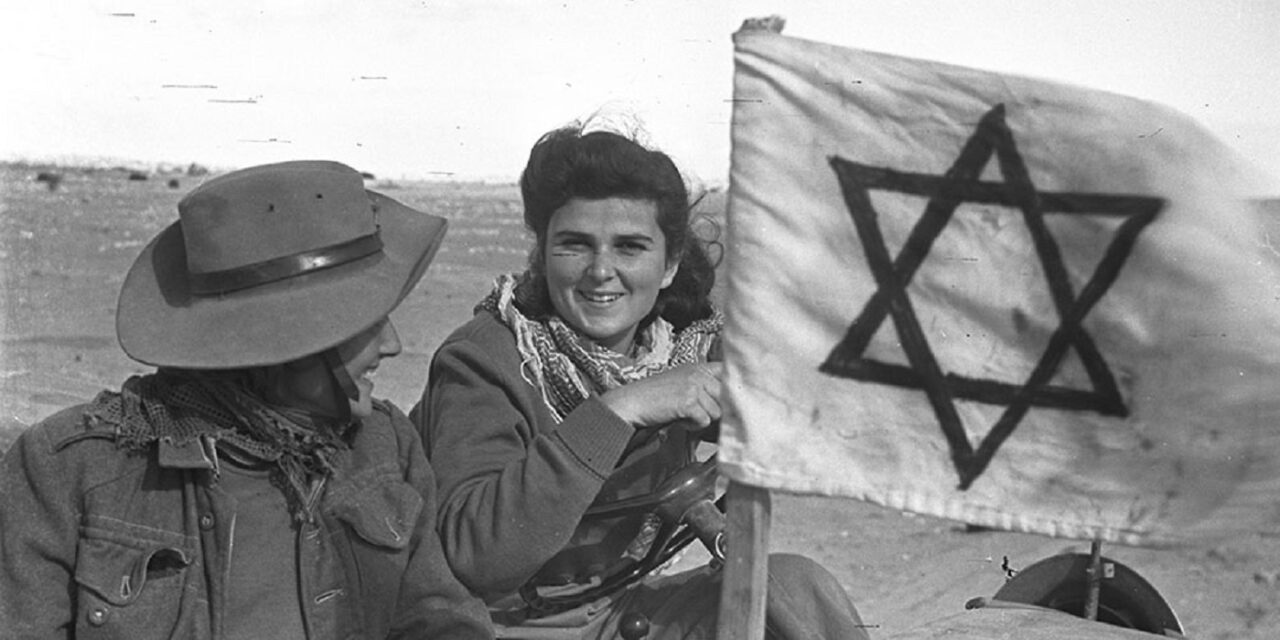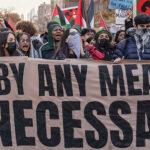This year the State of Israel is celebrating 75 years since its independence. It is also 75 years since Israel’s War of Independence. We take a look at how Israel had to defend itself the day after it was miraculously reborn as a nation.
Dividing the land
After 30 years of promises from Britain and other world leaders, in 1947 the Jewish people finally received formal approval from the United Nations General Assembly for the recreation of an independent Jewish state in the land of Israel. It is incredible that Israel was reborn just three years after the end of the Holocaust, the world’s biggest genocide meant to wipe out all Jews. Israel was established not because of the Holocaust, but rather in spite of it.
According to the UN Partition Plan, the Jewish people would receive a tiny fraction of the land originally set aside for them by previous agreements. The remaining portion was offered as an Arab state. The UN resolution 181 passed on 29 November 1947. Jewish leaders, eager for nationhood, accepted the offer of these disjointed fragments of land, but Arab leaders refused to accept, and vowed to wipe the new Jewish state from the face of the earth. The Arabs accepting their own state from the UN’s recommendations would have implied a recognition of Jewish rights and sovereignty. Instead, the Arabs prepared for war.
For the first time in nearly 2,000 years, after centuries of dispersion, exile, foreign oppression, and persecution, the Jewish people had a state to call their own. And they would protect it at all costs.
The Bible fulfilled
In a fulfilment of Isaiah 66:8, the nation of Israel was born in a day. Unlike some countries, there was no slow transition into statehood. Nor did Israel conquer a land and enforce occupation. Israel possessed the land legally granted by international agreement. But ultimately the recreation of Israel as a nation was a sovereign act of God in fulfilment of what He promised the Jewish people in the Bible.
Isaiah 66 also says that the birth of this nation will come before its labour, in other words before its birth pains. This analogy is opposite to medical science and in contrast to how most nations form. In the case of Israel, as soon as its independence was declared, it had to fight for its survival and has continued to do so to this day.
War of Independence
After nearly 2,000 years of exile and foreign domination, the Jewish people were once again free in their own land. On 14 May 1948, David Ben Gurion famously proclaimed Israel’s official independence and modern rebirth. Eleven minutes later, the president of the United States recognised this independence and many other countries followed. But celebrations were short-lived.
The next day five Arab armies (Syrian, Egyptians, Jordanian, Lebanese and Iraqi) attacked Israel. The Secretary General of the Arab League announced that the war against Israel would be “…a war of annihilation. It would be a momentous massacre in history that will be talked about like the massacres of the Mongols or the Crusades.”
Israel received very little support in their war of survival. They had few weapons. They had no cannons, no tanks and only 60 outdated planes. The total population of Israel was 650,000, with an army of only 60,000, although just 18,900 were fully armed. Short on manpower, resources and with almost no international assistance, Israel miraculously survived and even gained ground. But independence came at a great cost. Israel lost 6,373 people in the war, which was nearly one percent of its entire population, and much of its economy was destroyed.
After more than a year of fighting and against all odds, the Arab nations made armistice agreements with Israel and withdrew. For the first time in two millennia, the Jewish people had a national home and a strong defence force.
Impact of the War
Israel regained more territory than it had initially been awarded in the UN Partition Plan, including half of Jerusalem (the other part of the city, which contained the Western Wall and Temple Mount was under Jordanian control although Israel would later legally take this in the 1967 Six Day War, in which Israel again had to defend itself from invading Arab armies). Jordan gained control of the “West Bank” of the Jordan River, also known as Judea and Samaria, the biblical heartland of Israel. These new areas were never formalised into permanent borders or recognised by the UN. It simply represented the facts on the ground between 1949 and 1967.
Arabs also suffered as a result of the War of Independence, but not for the reasons that the present Palestinian leadership wants you to believe. Many Arabs were displaced for various reasons: some followed the instructions of Arab leaders who told them to leave their homes in Israel to “make way” for invading Arab armies, believing their promise that they would return when Israel was defeated. Some were displaced because of the many battles that took place. Some of the Arab refugees chose to remain in the Jewish state and would later become part of Israel’s Arab population. Jordan absorbed many, offering full citizenship. But other countries such as Egypt and Syria refused to accommodate Arab refugees. This is how the Arab (later named Palestinian) refugee crisis was created. Even to this day, 75 years later, the United Nations Relief & Works Agency for Palestinian Refugees (UNRWA), which was formed in 1949, still calls the Palestinians and their children and grandchildren, “refugees”.
Also, unbelievably, Arab nations have refused to allow Arab refugees of the 1948 war to find new home or grant citizenship. The reason is simple: allowing ‘Palestinian refugees’ to settle in Arab countries would weaken the optics of the Palestinian cause. As a result, there are now millions of Palestinian Arabs classed as refugees and they are rightly angry. But Israel is not to blame. Israel did not force Arabs out of the land. Whilst there were tensions, many Jewish people tried to persuade their Arab neighbours to remain.
The untold story
The Palestinian leaders call the movement of Arabs in 1948, the ‘nakba’, which means ‘catastrophe’. They use this term as a slanderous campaign against Israel. But the only catastrophe is the failure of successive Palestinian regimes to recognise the State of Israel and their using the Arab people as pawns in its anti-Israel agenda. Whilst marking the ‘nakba’ receives international exposure, the Jewish people’s plight in 1948 is largely untold. When the State of Israel was born, over 850,000 Jews were expelled from their homes and communities across the Middle East and North Africa where they had lived for over 2,000 years. These Jewish families lost everything – their homes, their possessions, their ancestral heritage, and their religious belongings – everything had to be left behind. Yet, they didn’t remain refugees. Beginning in 1948, hundreds of thousands of these Jewish refugees fled to the United States or Europe, but it was the safe haven of the newly established State of Israel that opened its doors without hesitation to welcome them home.
Israel lives
In the decades since Israel was reborn as a modern nation, the Jewish state has faced numerous existential threats, from devastating wars to terror attacks. Nonetheless, Israel has faced every trial head-on, and has miraculously emerged victorious and more resilient than before.
The promises God made to Abraham, Isaac, and Jacob are being fulfilled before our very eyes as deserts bloom, and Israel, which is among the top global leaders in innovation, serves as a light unto the nations of the world. Seventy-five years since her rebirth as a modern nation, Israel lives. The people of Israel live. The Jewish state remains, stronger than ever. Israel is a blessing to the Jewish people, who are now back in the land of their inheritance. Israel is a blessing to Christians, who love the land of the Bible, and Israel is a blessing to the world.

This year, we want to do more to bless Israel and the Jewish people.
We know that as we bless Israel this year, God will bless us, just as He promised in Genesis 12:3, “I will bless those who bless you, and whoever curses you I will curse; and all peoples on earth will be blessed through you.” Now is the time to bless Israel and the Jewish people.
Why Israel?
Free Ebook
Why Israel answers the critical questions and presents the essential reasons why Israel matters to God, to Christians and to the world.










